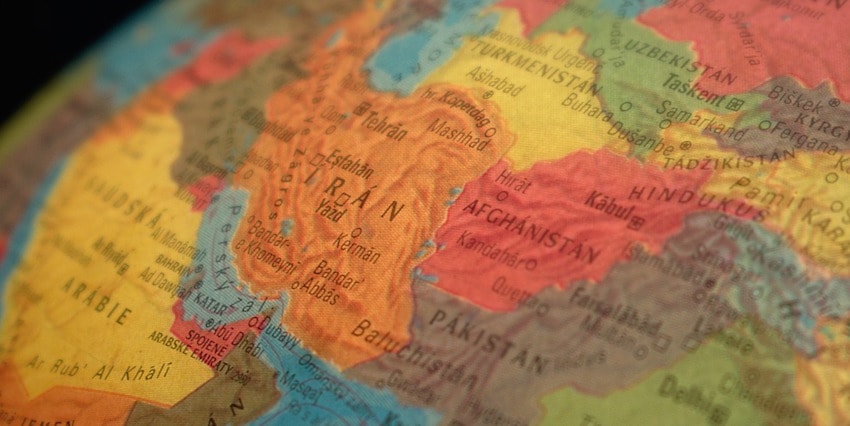
Plastic surgery is very popular in the United States as well as other countries around the world. The number of people undergoing a procedure continues to grow every year. In addition to the growing number of procedures performed in countries around the world, a growing number of patients are also deciding to travel outside of their home countries in order to have a procedure and this is decision is better known as “medical tourism”.
One country that might soon be marked off the list of potential “medical tourism” locations is Iran. Lawmakers in Iran are working on a new law that could have a big impact on the type of plastic surgery that can be performed in that country.
A law focused on “Beauty and Plastic Operations” is being discussed due to the increasing popularity of these types of plastic surgery services. According to lawmakers in Iran, surgical procedures that are known by such names as “elf ear”, “camel lip” and “pig nose” will be included in a list of so-called “extreme” surgeries. The procedures are being included in that last because they are viewed as being unethical and “un-Islamic” in nature.
Hassan Noroozi, a spokesperson for the judicial and legal committee of the Islamic Consultative Assembly (Islamic Republic Parliament), stated that “changing the forms of the body of a person created by [God] is rejected in various religions and is considered forbidden. Therefore, Iran will punish lovers of such ‘un-Islamic’ beauty trends according to the country's criminal code: 74 lashes or jail sentences of 10 to 60 days, as well as that surgeons offering such procedures will also be brought to justice and deprived of their licenses.”
Iran occupies a prominent position in the list of Middle Eastern countries that provide plastic surgery that creates natural looking, quality results. At the moment, it is not known exactly what extent the “Beauty Law” that has been proposed by the Iranian parliament will prevent the “unusual beauty” trend they feel is part of the country.
In a recent interview, Mohammad Shahin Sadeghi, a leading plastic surgeon, a member of the Academic Council of the Shahid Beheshti University of Medical Sciences and Health Services in Tehran and a former vice speaker of the Iranian Mejlis addressed the changes proposed by the law.
Sadeghi noted that the law is only in draft form at the moment and it has not been published in the Bulletin of the Parliament's Health Commission. Before the law can be put into effect, it will need to receive the approval of the other commissions of parliament before it takes its final shape. Sadeghi also pointed out that the “approval of the Parliamentary Food and Drug Administration is very important.”
He added that “broadly speaking, I believe that this is a right and good measure to prevent the defacement of human appearance. However, I should note that plastic surgeons themselves sometimes are not against solving problems in surgery, even in unconventional ways. But we in Iran believe that plastic surgery is science, knowledge, and work based on medical principles. We do not accept non-conventional and immoral surgeries as normal, and we hope that the Ministry of Health and Medical Education, as well as other relevant organizations, will take significant measures to prevent the spread of these types of non-conventional plastic surgeries. This is largely detrimental to the image of our country in the field of plastic surgery.”
One of the definitions of the Iran plastic surgery law that needs to be clarified is who will be impacted by the law if it passed. Will it only apply to Iranians?
Sadeghi addressed the issue of who the law will impact in the future. Sadeghi said that Iran has “highly skilled doctors specializing in organ transplantation, in traditional medicine, and plastic surgery. Many people travel from Europe to Iran for medical services for two important reasons. First of all, the high level of experience of doctors and their global prestige, as well as good and attractive prices for these services in Iran, compared to other countries. That is why in order to preserve the ‘brand’ of quality and patient confidence, elementary principles of medicine must be respected. There must be a scientific approach to everything. ‘Extreme' or non-traditional types of plastic surgery do not fit into the scientific framework or ethical standards. Furthermore, the practice of such operations also spoils the reputation and image of medicine in our country. For this reason, we look forward to no exceptions.”
At the end of the interview, Sadeghi reported that the current number of non-traditional operations is not very large right now in Iran. The current total is 1 out of every 1000 surgeries. However, he claims that this number is significant for Iran and such “amoral fashion must be prevented”.
As of press time, the new Iran plastic surgery law regarding the type of plastic surgery that can be performed in the country has not been officially passed.
MA